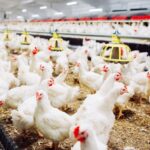Farming is the backbone of many economies, but it also comes with unique financial challenges. To support agricultural productivity and ease the financial burden on farmers, governments around the world offer a variety of tax incentives and deductions tailored to the farming sector. These benefits help farmers manage their cash flow, invest in their operations, and navigate the uncertainties of weather, markets, and input costs.
One of the most significant tax advantages available to farmers is the ability to deduct expenses related to ordinary and necessary farm operations. This includes costs such as seed, fertilizer, feed, pesticides, fuel, repairs, insurance premiums, and wages paid to farm workers. By deducting these operational costs, farmers can reduce their taxable income and lower their overall tax liability.
Depreciation is another major deduction that benefits farmers. Equipment and machinery used in the farm business—like tractors, harvesters, irrigation systems, and storage facilities—can be depreciated over time. In many jurisdictions, special accelerated depreciation options are available, allowing farmers to recover the cost of these assets faster, which can be particularly helpful for reinvestment in newer, more efficient technologies.
Tax credits are also offered for certain farm-related investments. For example, in some regions, farmers who adopt environmentally friendly practices, invest in renewable energy systems like solar panels, or engage in conservation efforts may qualify for specific tax credits. These incentives not only reduce taxes but also promote sustainable agriculture.
Farmers may also benefit from tax incentives related to land use. In several countries, agricultural land is taxed at a lower rate than residential or commercial property. Additionally, income from selling farm products directly to consumers at farmers’ markets or through farm-to-table programs may be subject to different tax treatment, depending on local regulations.
For those involved in family-run farms, estate and succession planning often comes with favorable tax treatment. Special provisions can allow for the deferral or reduction of estate taxes when agricultural land and assets are passed down to the next generation. This helps ensure that family farms remain operational and don’t have to be sold off to pay large tax bills.
Tax incentives may also extend to weather-related losses. In times of natural disasters such as floods, droughts, or wildfires, farmers might be eligible to claim disaster-related deductions or receive tax relief under emergency provisions. These measures are designed to help farmers recover more quickly and maintain production.
Recordkeeping plays a crucial role in claiming these benefits. Farmers are advised to maintain accurate and up-to-date records of all income, expenses, and asset purchases. This not only ensures compliance but also maximizes the ability to claim every available deduction and incentive.
Ultimately, tax incentives and deductions available to farmers play a vital role in supporting agricultural resilience. By taking advantage of these provisions, farmers can better manage risk, improve profitability, and invest in long-term sustainability. For many, understanding and leveraging these tax tools can be just as important as managing crops and livestock.
Join 'Farmers Mag' WhatsApp Channel
Get the latest Farming news and tips delivered straight to your WhatsApp
CLICK HERE TO JOIN






